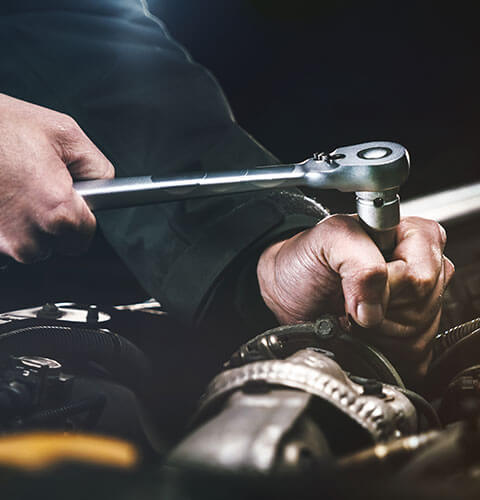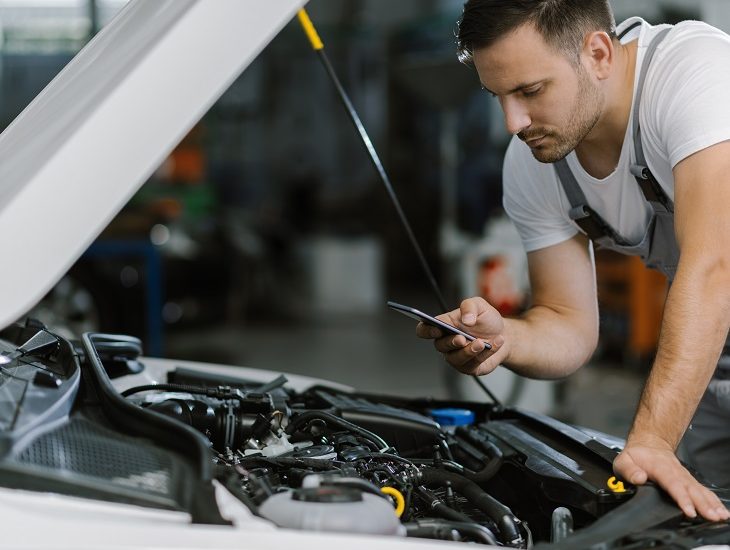Guide to becoming a motor trader: checklist
Starting in the motor trade can be exciting, but also daunting. There are lots of things to consider before setting up your motor trade business.
We want to help you to get it right, so we’ve put together a checklist on how to become a motor trader.
Our guide on how to become a motor trader offers practical help and advice on:
- Choosing the right trade for you
- Working part-time or full-time
- The best location to base your business
- Creating a successful business plan
- Do you need trade plates?
- Getting motor trade insurance
What to consider when becoming a motor trader
You have an enthusiasm for working with vehicles – that’s a great start! But, how do you get up and running and make a success of working in the motor trade?
Most people start small and aim bigger. Many traders sell a few cars from home on a part-time basis first, to see if they can turn a profit. Alternatively, they may fix the odd vehicle for friends and family in their home garage. This is a great way of building up their client base.
The first question you will need to answer is:
1. What motor trade business should I start?
The motor trade is diverse, and there are many different things you can do such as:
- Vehicle sales
- Servicing or repairing vehicles
- Vehicle collection and delivery
- Vehicle recovery
- Tyre fitting
- Working as a mobile mechanic
- Valeting
- Restoring classic vehicles
- Bodywork repairs
- Auto electrical work
If it involves working on or with vehicles for profit (apart from hire and reward, e.g. driving taxis or courier work), then it’s a motor trade business!
You may want to work in more than one motor trade area – e.g. working as a mechanic while trading.
Just ask yourself:
- Is it something I will enjoy doing?
- Do I have enough basic knowledge to get going?
- Can I make a profit doing it?
If the answer is yes to these, then you’re off to a good start!
2. Do I work full-time or part-time?
Diving headfirst into a new business without testing the waters is a brave, and perhaps an unwise decision
A common way to join the industry is to start by selling cars part-time. Many people find it easy to balance this alongside their main job or education. You can start small and build enough income to purchase a stock of vehicles, which can then help you move into full-time sales.
If you already have some experience, maybe in sales for a dealership, then you could have enough knowledge to go full-time straight away.
Selling isn’t for everyone though. Some people prefer working on vehicles to repair, service, restore or valet them. Again, the decision to go full-time normally comes after starting a business like this as a side-line. This is a sensible decision – it allows you to judge whether you can build a loyal customer base, make contacts in the motor trade and find the best places to source parts from.
The decision to work as a full-time or part-time motor trader goes hand in hand with the next decision:
3. Should I work from home or business premises?
Working from home is only possible if you have enough space. We would suggest speaking to your council before trading from home, check how many vehicles they will permit you to work with at any given time.
Another option is to buy or rent some land or a lock-up facility. This gives you the flexibility to set up business away from home, without the higher costs of having a dedicated showroom or garage.
If you’re ready to be a full-time motor trader, then think about setting up business premises away from home. A garage or forecourt can help you to serve more customers, employ other people, and scale your business up to the next level.
Consider the location of any business premises carefully. You might want to be in an area with more people to promote your services to, or a quieter area where there is less competition. You need to ensure your premises are secure, away from the risk of a natural disaster like flooding, and are easily commutable.
Now you’ve made the basic decisions to start, you need to:
4. Create a business plan
This might seem a bit grand if you only want to buy and sell cars on an occasional basis. Everybody needs to have goals and targets to aim towards. Having an idea of what you want to achieve will help you to make a success of your motor trade business.
Considerations for your business plan:
- How much money will you need to start?
- What expenses will you have?
- Is it just you, or do you want to employ other people?
- How will you market your services?
- Who would you be competing against?
- Will you need to pay tax and national insurance on profits you make? Even if you only work part-time, your work in the trade might lead to you exceeding your personal tax allowance (the latest allowance is here). Think about setting aside some money to pay this if needed.
- How many vehicles do you need to sell or work on to make the money you want?
The most important thing is to set realistic and achievable targets. Whether it’s building a team or making a specific profit each month, with these targets in place, you can measure your success, and make adjustments if needed.
5. Should I get trade plates?
Any trader who sells vehicles regularly should consider getting trade plates. You can pay for trade plates to cover you for a 6 or 12 month period. This means you don’t have to pay tax or register every vehicle individually passing through your business. The advantage of this is that it saves you time, money and hassle if you’re trading a lot of vehicles. Untaxed vehicles can still be driven under trade plates and insured as part of your motor trade policy.
Which brings us on to…
6. Getting insurance
You’ve got a business. You know what to do and how to succeed.
Before you start trading, you need motor trade insurance. Traders’ insurance covers your business for sales, service, and repair work, including driving vehicles in the trade.
This is where Bollington comes in! We have access to a wide range of motor trade insurers, can offer advice, and compare the best insurance to meet your needs.
We can take the confusion away, and offer competitive prices on cover for traders who work part-time or full-time.
Call us for advice on 01625 365177 or get a quote now.




